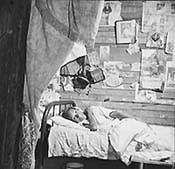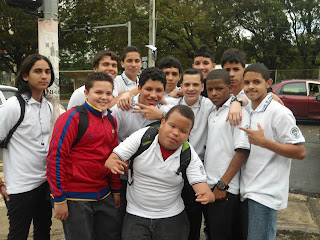Localizacion:
El Fanguito era lo que conocemos ahora como el puente de la constitucion, que es donde comienza la carretera numero dos y se levanta donde se juntan la bahia de San Juan y el canal de Martin Pena. Tiene a su lado oriental el parque central de San Juan y el canal Martin Pena toda esta area era la comunidad El Fanguito.Estaba ubicada en la barriada Tokio en Hato Rey. La escuela ahora se encontraba en unas facilidades militares abandonadas en un area manglar, conocida como "el fanguero" y "El Pantano". La estructura de la escuela se ha perdido y ahora se encuentra el Colegio Tecnologico De San Juan y el estacionamiento.
Los estudiantes y maestros para poder entrar y salir del edificio tenian que pasar por tablas para evitar enchancarse. Los padres los dejaban al frente de la escuela en el redondel, algunos caminaban pero eran muy pocos. Lo que la limitaba era que en los dias lluviosos el sotano de la escuela se inundaba causando la perdida de varios instrumentos.
Escuela:
Una estructura de cemento antigua. La escuela contaba con dos niveles, un redondel donde los padres buscaban a sus hijos y unas escaleras de cinco escalones de entrada. Los salones se dividian con paneles de madera, tenian poca iluminacion y mucho polvo.Se uso un edificio existente en cemento que se usaba como base militar. Estando la escuela se construyo un anexo en cemento para usarse como salon de banda, dance band, etc.
La escuela estaba en la Calle I Andreu Aguilar en la Parada 37, detras del parque De Bombas de Hato Rey. Fue trasladada a esta area por que aumento la matricula y por haber poco espacio en la escuela y no tener las facilidades necesarias para emplear una escuela especializada en musica en ese lugar.




.jpg)
.jpg)


































